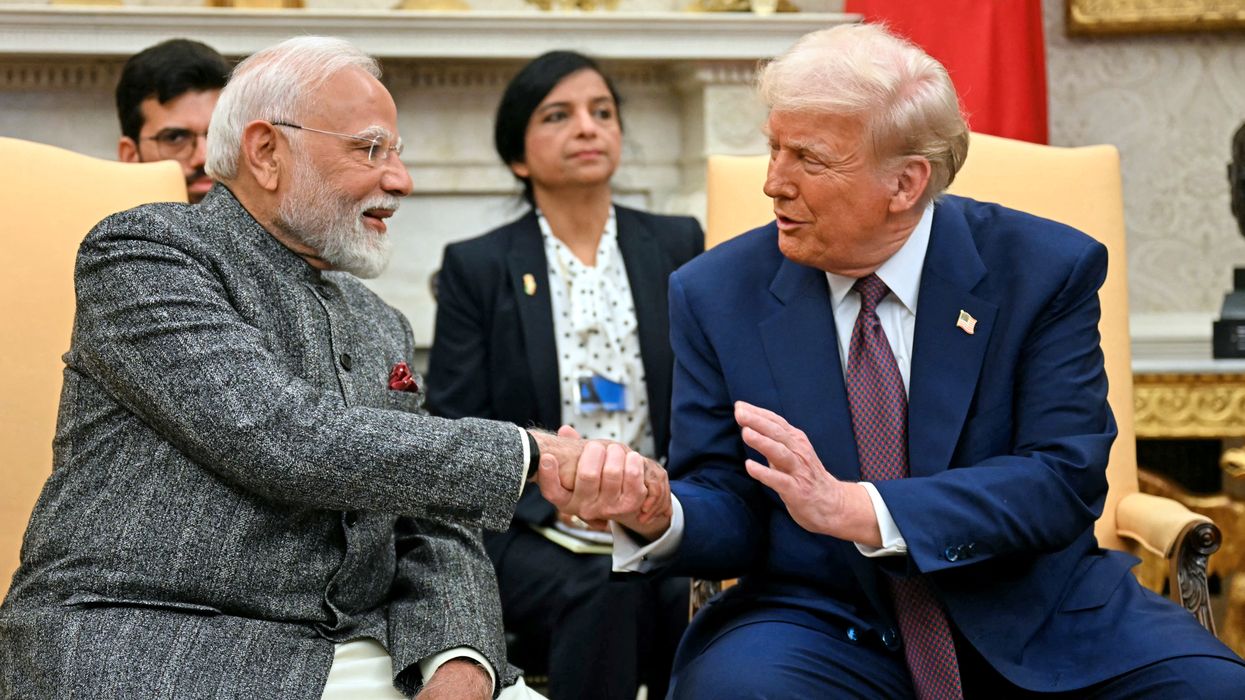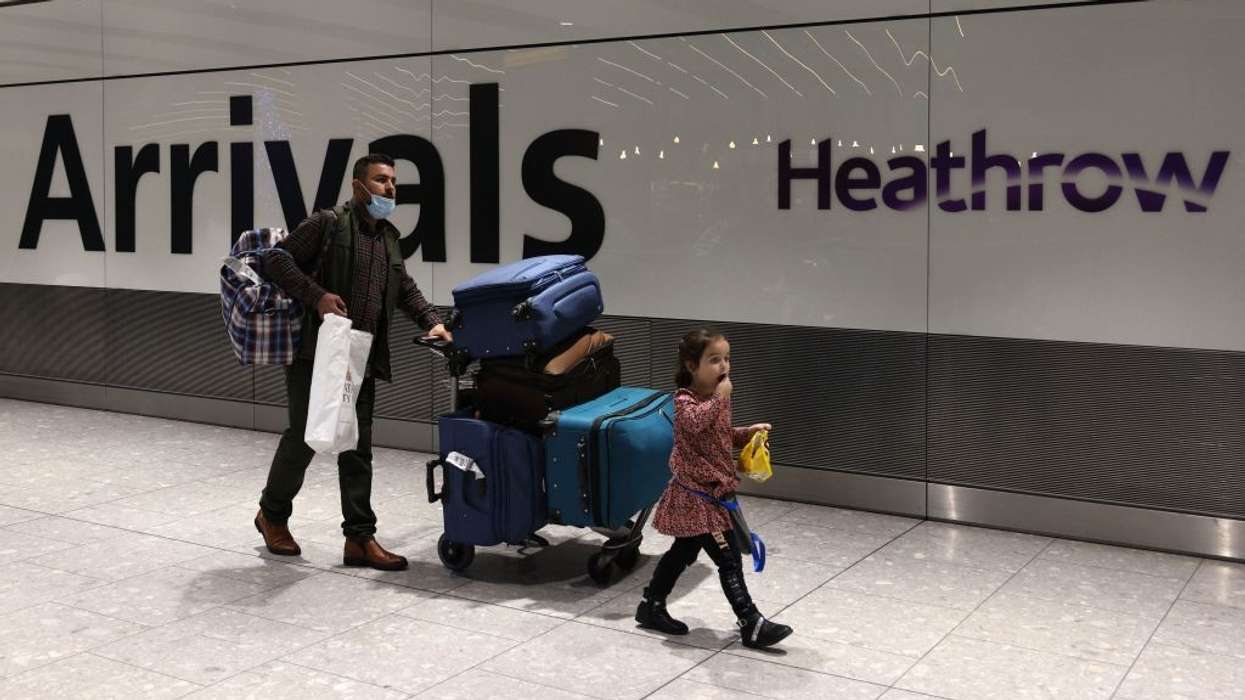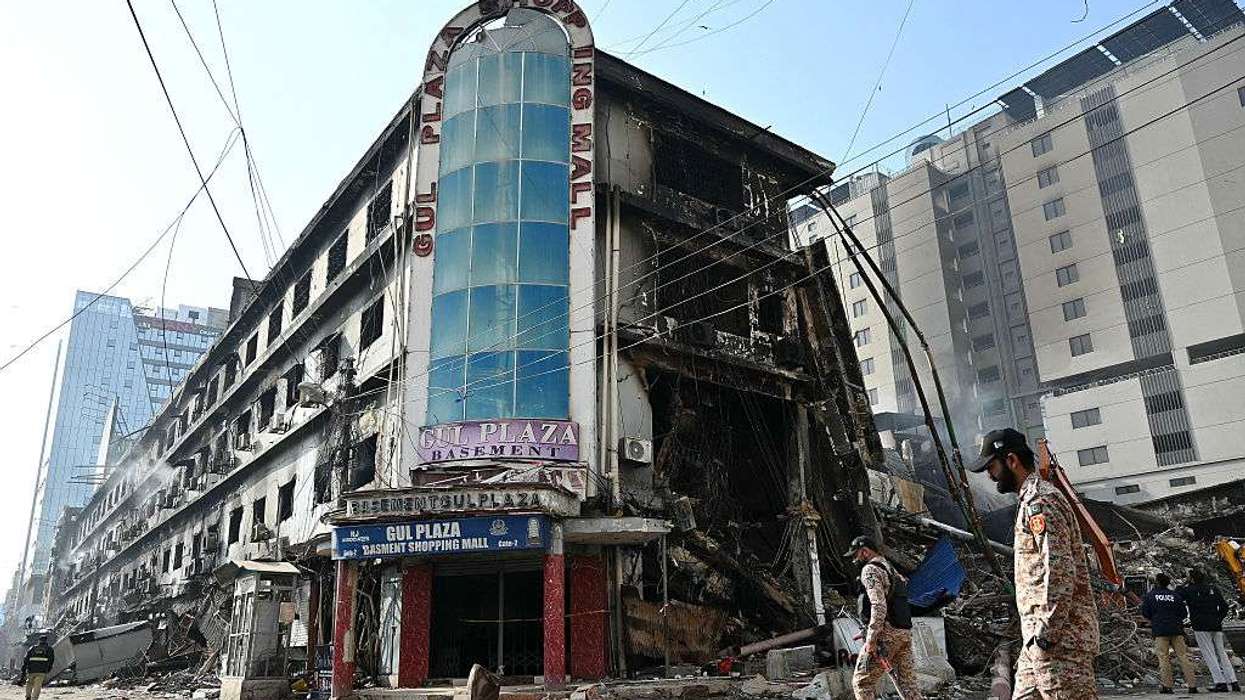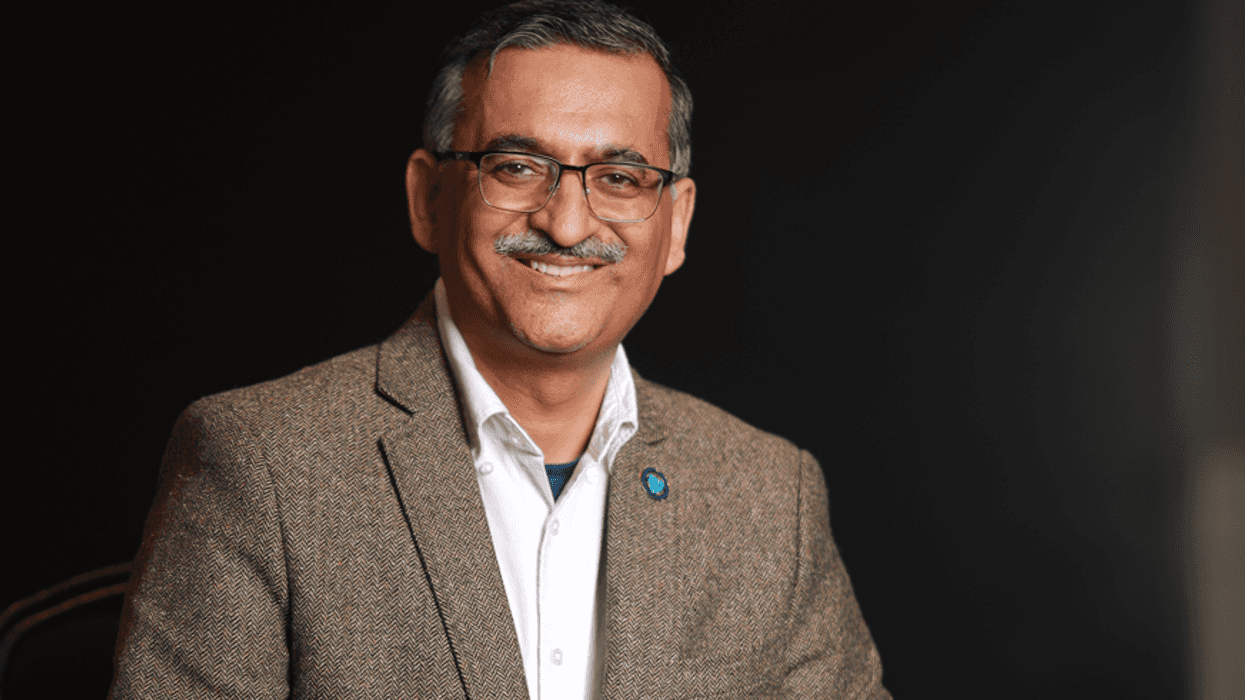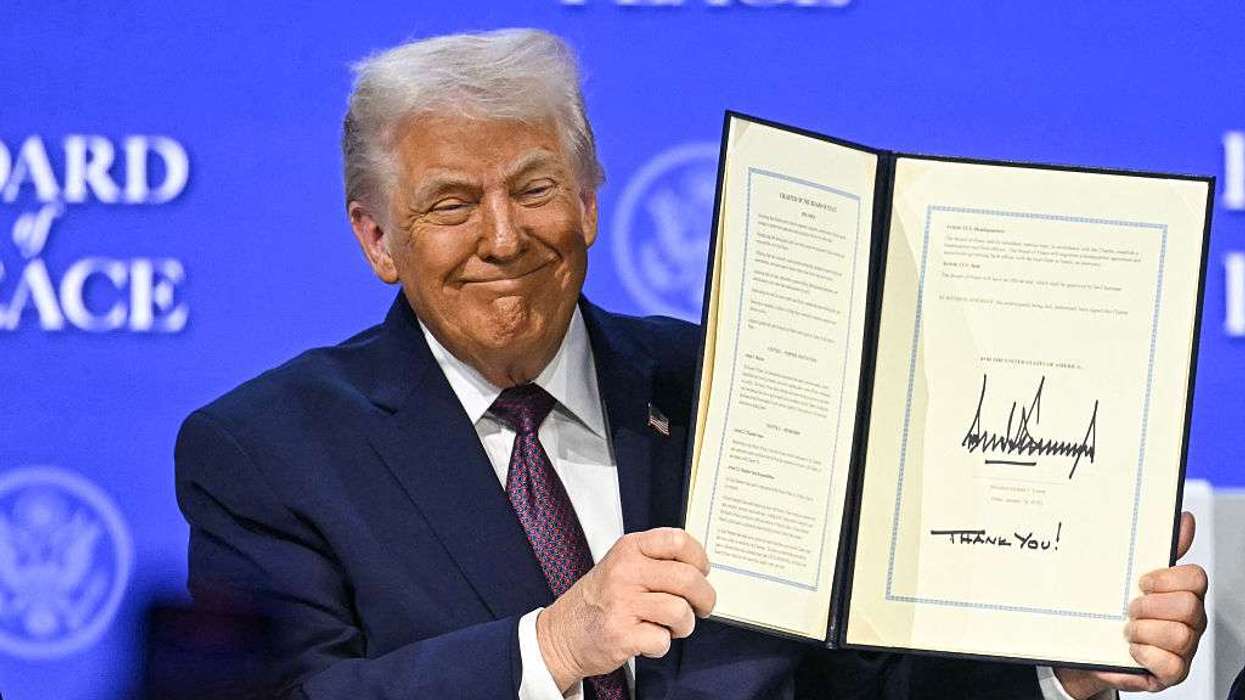INDIA and the US have agreed to begin negotiations aimed at resolving trade and tariff disputes, following talks between Indian prime minister Narendra Modi and US president Donald Trump in Washington.
India has committed to increasing purchases of US oil, gas, and defence equipment, while both sides pledged to address trade barriers.
The meeting came hours after Trump criticised India’s business environment and announced plans for reciprocal tariffs on countries that impose duties on US imports.
“Prime minister Modi recently announced the reductions to India’s unfair, very strong tariffs that limit US access to the Indian market, very strongly,” Trump said. “And really it’s a big problem, I must say.”
India’s foreign secretary Vikram Misri said the trade concerns could be resolved within seven months.
A joint statement released after the meeting noted that the US welcomed India’s recent steps to lower tariffs on selected US goods and expand market access for US agricultural products. Talks are set to take place to negotiate parts of a trade deal by autumn 2025.
Both leaders had differing perspectives on tariffs, but Misri said they had found a way forward. “What is more remarkable… is the fact that we have a way forward on this issue,” he said.
India has also expressed interest in expanding its defence and energy trade with the US. Trump said India could become one of Washington’s largest buyers of oil and gas and increase defence purchases “by billions of dollars.” Modi said India aims to double bilateral trade by 2030.
The leaders also discussed nuclear energy cooperation, though legal challenges remain.
Trump said the US is working to provide India with F-35 stealth fighters, but Misri later clarified that discussions were still at the proposal stage, with no formal process underway.
The White House did not comment on the potential deal.
Tariff concerns remain
Trump, who had a strong relationship with Modi during his first term, reiterated his concerns over India’s tariffs, calling them “very high.” He said the US would impose reciprocal tariffs.
“We are being reciprocal with India,” Trump said. “Whatever India charges, we charge them.”
Modi, in response, said he would prioritise India’s interests.
“One thing that I deeply appreciate, and I learn from president Trump, is that he keeps the national interest supreme,” Modi said. “Like him, I also keep the national interest of India at the top of everything else.”
Both leaders also agreed to strengthen security ties in the Indo-Pacific region and collaborate on emerging technologies such as artificial intelligence.
Before the talks, a source described India’s recent tariff reductions as a goodwill gesture aimed at easing tensions. A US official said Trump sees increased defence and energy sales to India as a way to reduce the trade deficit.
India’s energy purchases from the US could rise to £19.8 billion from £11.9 bn last year, Misri said, adding that this could help narrow the trade deficit. The US currently has a £36.2 bn trade deficit with India.
Richard Rossow, head of the India programme at the Center for Strategic and International Studies, said tariffs would remain a contentious issue.
“It’s going to be a boxing match,” he said. “India is willing to take a few hits, but there’s a limit.”
Cooperation on immigration and China strategy
The US and India have also agreed to strengthen cooperation on illegal immigration and human trafficking. India is a significant source of immigrants to the US, including skilled workers on visas and individuals living in the country without legal status.
The agreement is seen as part of Trump’s broader strategy to counter China. India shares concerns over China’s growing military presence and economic influence.
Modi also expressed concerns about a potential US-China trade deal that could sideline India, according to Mukesh Aghi, president of the US-India Strategic Partnership Forum.
India has continued to maintain ties with Russia despite the ongoing war in Ukraine. While Western countries have reduced their reliance on Russian energy, India remains a major buyer.
“The world had this thinking that India somehow is a neutral country in this whole process,” Modi said. “But this is not true. India has a side, and that side is of peace.”
US approves extradition of Tahawwur Rana
The US has also approved the extradition of a suspect in the 2008 terrorist attacks in Mumbai in which over 160 people were killed, Trump said on Thursday in a press conference.
Trump did not name the individual in the press conference but a joint statement from the two sides later identified the man as Pakistani-origin Chicago businessman and Canadian citizen Tahawwur Rana.
The three-day attacks on hotels, a train station and a Jewish centre in which 166 people were killed began on November 26, 2008. India says Pakistan-based Islamist group Lashkar-e-Taiba orchestrated the attacks. Pakistan's government denies being involved.
(With inputs from agencies)
